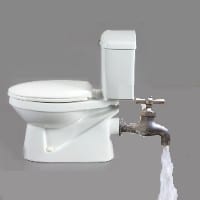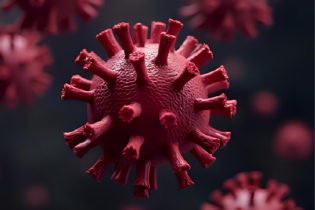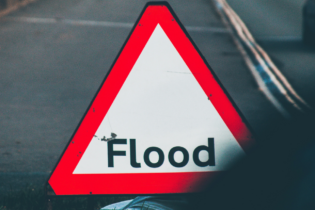Durban – More than 5 000 Durban residents have given the thumbs-down to the city’s controversial toilet-to-tap water recycling proposal.
Most of the objections, which include a large number of signatures from Muslim residents, are contained in a petition sent to the city as part of the mandatory environmental impact assessment process which runs for the next six weeks, with an official deadline of December 10 for the last public comments. The plan involves recycling and purifying about 116 million litres of wastewater a day from the KwaMashu and Northern treatment works and then blending it with conventionally treated water at a ratio of about 30 percent recycled water and 70 percent normal water. If the project is approved, the new water would supply about 10 percent of the city’s current water demand and be piped to suburbs in the northern parts of the city, including Umhlanga, KwaMashu, Durban North, Glenashley, Phoenix, Newlands West, Umgeni Park and Avoca Hills. Golder Associates, the public participation consultants, say the water will pass through at least three new and advanced safety treatment steps – ultra-filtration membranes, reverse osmosis and advanced oxidation. The company says these treatments were designed to remove all germs, dirt, bodily fluids, chemicals and other contamination in a process similar to that used in Windhoek, Namibia, where residents have been drinking a blend of recycled water for 44 years without any reports of waterborne diseases or negative health effects. Nevertheless, thousands of residents who signed a petition or sent in e-mail protests are strongly opposed to the proposal. “As a Muslim, my religion does not permit me to use such water. Neither do I find it humanly possible to drink sewage water, purified or not,” Durban resident ZaxFyzoo complained in an e-mail sent to Golder Associates. ZandileMkhize complained: “This is disgusting.” Pauline Smith suggested that instead of purifying wastewater, eThekwini should invest more money in fixing cracked pipes and reducing water theft and other non-revenue wastage which led to the loss of 36 percent of water currently supplied to Durban by Umgeni Water. Maurice Grapendal, Kara Chanisse and TharunaDevchand were among several residents who suggested that the city should rather set up a desalination plant to purify sea water.“Instead of spending millions on treatment plants, spend it on educating the public on saving water,” suggested FaeezEbrahim.
Maggie Hill said one of her main concerns was the risk of technical or operational error during the sophisticated water purification process. “All it needs is human error and the whole of Durban could be wiped out by diseases like cholera,” she said. Responding to some of the concerns, Golder Associates said that apart from Windhoek, which began a similar scheme in 1968, the Karoo town of Beaufort West had introduced a R42-million drinking water reclamation scheme that became operational in January last year. Residents of Cloudcroft, New Mexico, had been drinking a blend of 50 percent treated effluent and 50 percent naturally sourced water for several years. A senior official of the Singapore Public Utility Board told a recent conference in Durban that Singapore’s 5.2 million residents had also been drinking a blend of purified effluent for the past 12 years. Senior Windhoek Water executive JurgenMenge told the conference that it was essential to ensure public trust in such projects by ensuring that the treatment plants were not run by politically connected fly-by-night contractors. In a background information document published earlier this month, Golder Associates noted that eThekwini had demonstrated its ability to meet the most rigorous water safety standards for several decades and scored 98.77 percent in the latest 2012 Blue Drop water management programme run by the Department of Water Affairs. – The Mercury Source: iol.co.za





